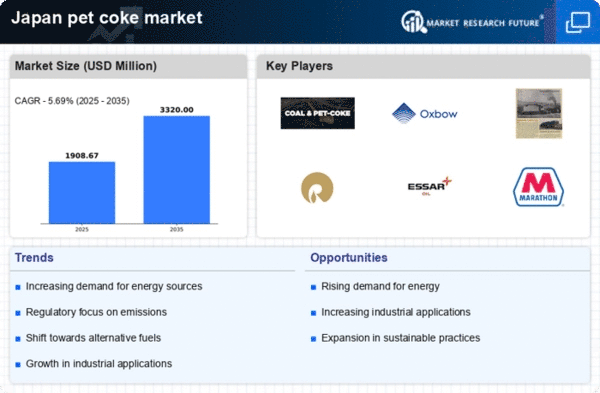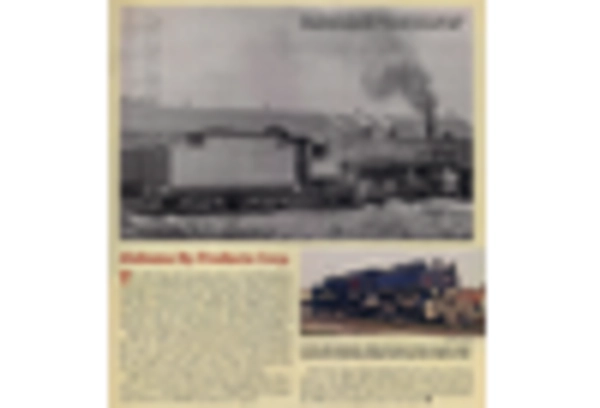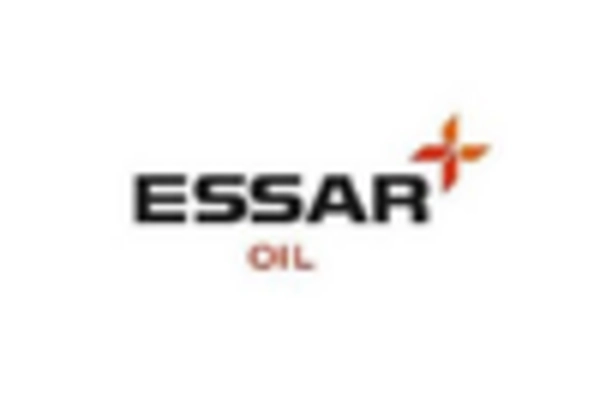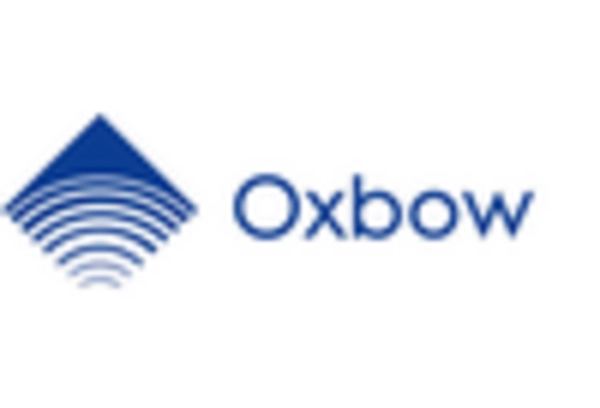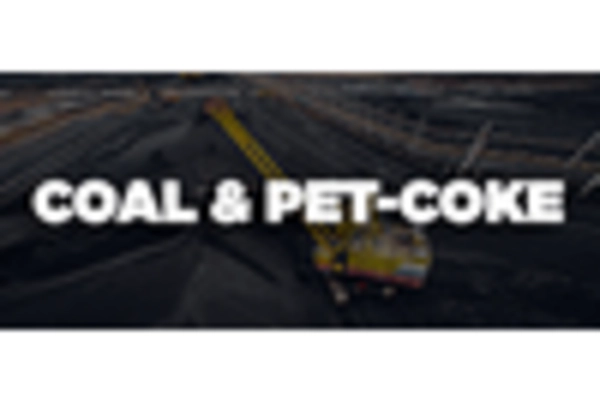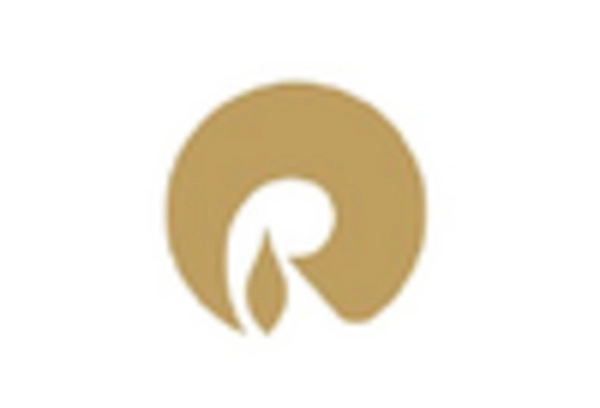The pet coke market in Japan is characterized by a competitive landscape that is increasingly shaped by strategic initiatives aimed at enhancing operational efficiency and sustainability. Key players such as Reliance Industries Limited (IN), Valero Energy Corporation (US), and Oxbow Carbon LLC (US) are actively pursuing strategies that emphasize innovation and regional expansion. Reliance Industries Limited (IN) has been focusing on diversifying its product offerings while enhancing its supply chain capabilities, which appears to position the company favorably amidst growing demand for pet coke in various industrial applications. Similarly, Valero Energy Corporation (US) is leveraging its extensive refining network to optimize production processes, thereby enhancing its competitive edge in the market.The business tactics employed by these companies reflect a moderately fragmented market structure, where localized manufacturing and supply chain optimization are pivotal. The collective influence of these key players suggests a dynamic interplay of competition, with companies striving to establish a foothold through strategic partnerships and technological advancements. This competitive environment is further complicated by the need for compliance with environmental regulations, which necessitates a focus on sustainable practices.
In October Reliance Industries Limited (IN) announced a significant investment in a new pet coke production facility aimed at increasing its output capacity by 20%. This strategic move is likely to enhance its market share and meet the rising demand for pet coke in the region. The investment underscores the company's commitment to maintaining a robust supply chain while addressing the evolving needs of its customers.
In September Valero Energy Corporation (US) entered into a partnership with a leading technology firm to develop advanced carbon capture technologies for its pet coke production processes. This collaboration is indicative of the company's proactive approach to sustainability, as it seeks to reduce its carbon footprint and align with global environmental standards. Such initiatives may not only bolster Valero's reputation but also provide a competitive advantage in a market increasingly driven by sustainability concerns.
In August Oxbow Carbon LLC (US) expanded its operations in Japan by acquiring a local distributor, thereby enhancing its market presence and distribution capabilities. This acquisition is expected to streamline Oxbow's supply chain and improve its responsiveness to market demands. The strategic importance of this move lies in its potential to facilitate better customer engagement and foster long-term relationships within the region.
As of November the pet coke market is witnessing trends that emphasize digitalization, sustainability, and the integration of advanced technologies such as AI. Strategic alliances are becoming increasingly vital, as companies recognize the need to collaborate in order to navigate the complexities of the market. The competitive differentiation is likely to evolve from traditional price-based competition towards a focus on innovation, technology, and supply chain reliability. This shift suggests that companies that prioritize these aspects will be better positioned to thrive in the evolving landscape.


